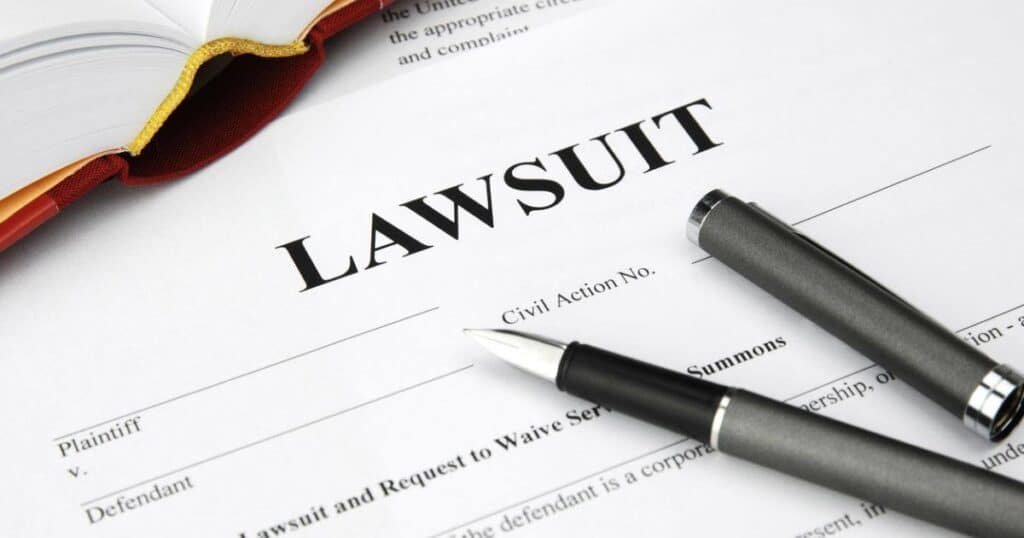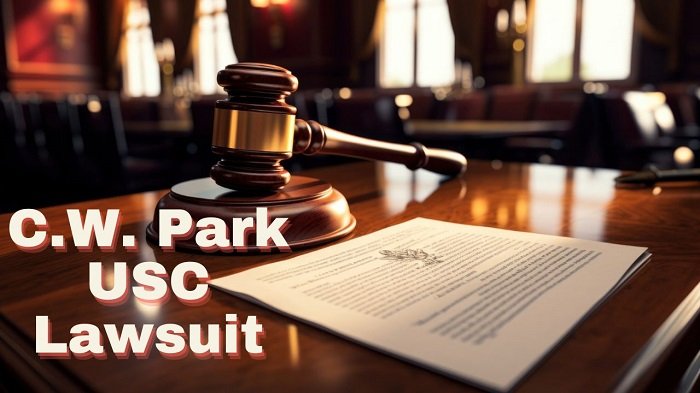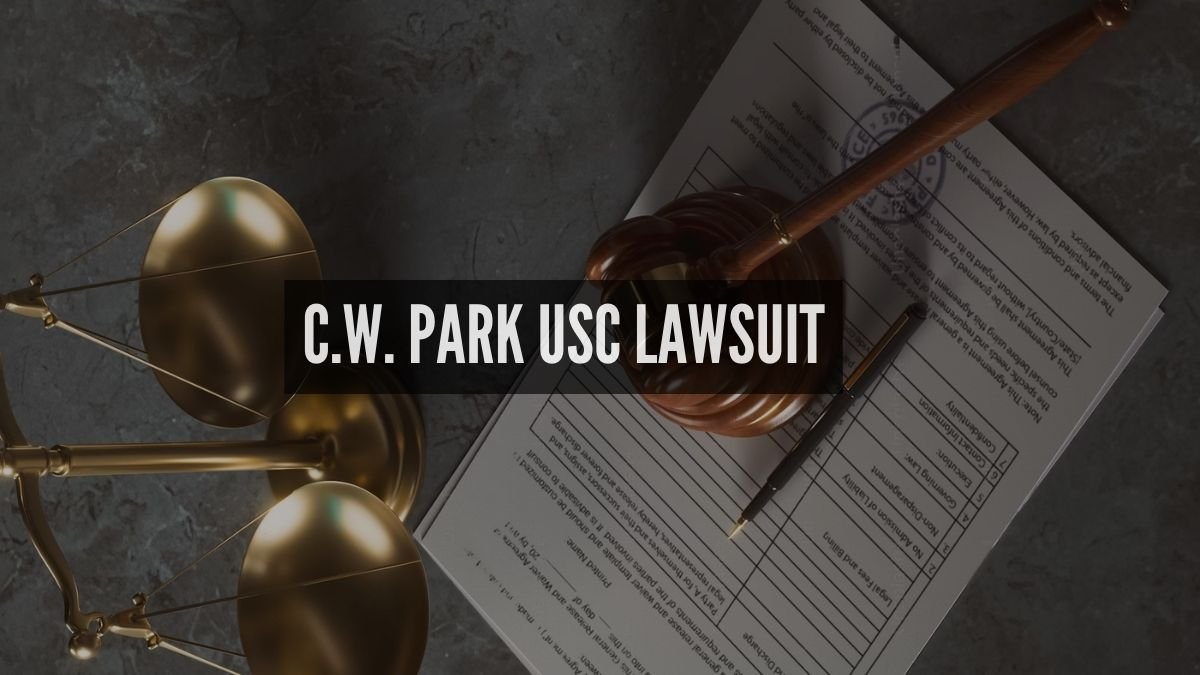The C.W. Park USC lawsuit has garnered significant attention in recent months, sparking discussions about academic integrity, research misconduct, and institutional accountability. In this article, we’ll delve into the details of the lawsuit, explore its implications for academia, and discuss the broader implications for research integrity and ethics.
The C.W. Park USC lawsuit stands as a stark reminder of the insidious prevalence of sexual harassment within academic institutions and the devastating impact it has on victims. This high-profile case exposed a pattern of abuse of power and the failure of a prestigious university to uphold its responsibility to protect its students.
The legal arena often serves as a battleground where individuals seek justice, resolution, and accountability for alleged wrongs. In academia, legal disputes can arise, shaping the landscape of educational institutions and the lives of those involved. One such contentious case is the C.W. Park USC lawsuit, which has garnered significant attention due to its intricate details and potential ramifications for both the individuals involved and the broader academic community.
The C.W. Park USC lawsuit centers around allegations of academic misconduct, discrimination, and retaliation within the University of Southern California (USC)’s Marshall School of Business. Dr. C.W. Park, a distinguished marketing professor, filed the lawsuit against USC, alleging various violations of his rights and professional integrity.
According to the lawsuit, Park, who moved to the U.S. from Korea in the late 1960s, spoke almost exclusively in Korean to Kim during her employment. The lawsuit alleges that “as an older Korean man, Park knew the cultural difficulty that Kim would experience in trying to stop, protest and/or report Park’s sexual assaults and harassment.”
Legal Proceedings and Developments:
- The C.W. Park USC lawsuit has undergone multiple legal proceedings and developments since its inception. The case has traversed various stages of litigation, including pre-trial motions, discovery, and attempts at settlement. Key moments in the legal saga include:
- Filing of the Lawsuit: Dr. Park filed the initial lawsuit against USC, outlining his grievances and seeking legal recourse for the alleged injustices he experienced.
- USC’s Response: USC vehemently denied Dr. Park’s allegations, asserting that it adhered to all applicable policies and procedures and that Dr. Park’s claims lacked merit.
- Court Rulings and Motions: The court overseeing the case has issued rulings on various motions and procedural matters, shaping the trajectory of the litigation. These rulings have addressed issues such as the admissibility of evidence, the scope of discovery, and requests for summary judgment.
- Public Scrutiny and Media Coverage: The C.W. Park USC lawsuit has attracted significant public scrutiny and media coverage, with observers closely following developments and analyzing the implications for academia and institutional governance.
- Ongoing Proceedings: As of the latest update, the lawsuit remains ongoing, with both parties continuing to litigate their respective positions in court.

Background:
The lawsuit involves allegations of research misconduct and academic fraud against Dr. Chon W. Park, a former professor at the University of Southern California (USC). Dr. Park is accused of fabricating data in numerous research studies published in reputable scientific journals, leading to questions about the validity of his research findings and the integrity of USC’s research environment.
Allegations and Investigations:
The allegations against Dr. Park surfaced after concerns were raised about the reliability of data presented in several of his published research papers. Subsequent investigations by USC and external regulatory bodies uncovered evidence of data manipulation and fabrication, prompting disciplinary actions against Dr. Park and raising broader concerns about research integrity within the institution.
Legal Proceedings:
The lawsuit filed against USC by affected parties, including research collaborators and funding agencies, alleges negligence and lack of oversight on the part of the university in ensuring the integrity of research conducted under its auspices. Plaintiffs argue that USC failed to adequately investigate and address red flags indicating potential research misconduct, resulting in financial losses, damage to reputation, and compromised scientific progress.
Implications for Academia:
The C.W. Park USC lawsuit has significant implications for academia, highlighting the importance of robust research oversight mechanisms, transparency in scientific inquiry, and accountability in academic institutions. It underscores the need for universities to prioritize research integrity, implement rigorous monitoring and reporting protocols, and foster a culture of ethical conduct among faculty, students, and staff.
Lessons Learned and Future Directions:
- As the legal proceedings unfold, stakeholders in academia are urged to reflect on the lessons learned from the C.W. Park USC lawsuit and take proactive steps to strengthen research integrity efforts. This includes enhancing training and education on ethical research practices, promoting collaboration and transparency in scientific endeavors, and fostering a culture of accountability and responsibility at all levels of the academic community.
- Support and Improvements in Education
- Encouragement of healthy partnerships and strong support networks for individuals affected by wrongdoing.
- Enhanced monitoring, training, and enforcement of ethical standards throughout the university.
- Projects for Transparency and Diversity
- Actions taken indicate a dedication to establishing a safe and welcoming environment for all students, including actions to enhance accountability, transparency, diversity, and student support.
- To ensure a fair and equitable learning environment, higher education institutions should prioritize equality and inclusion and take action to correct power imbalances.
- These developments show USC’s strong commitment to addressing the problems brought up by the case in an effort to rebuild trust.
- Current Report Of C.W. Park USC lawsuit Allegations
- Well, nothing has been decided yet because the arguments are still in action. The result will be finalized when the case will be fully active in the court and the both parties will be required to be present in the court to prove their justification in order to win the argument.

FAQs:
What is the lawsuit about?
It involves allegations of research misconduct against Dr. Chon W. Park at USC.
Who filed the lawsuit?
Affected parties, alleging negligence by USC.
What are the allegations against Dr. Park?
Fabricating data in research studies.
What could be the consequences?
Financial penalties, reputation damage, and policy changes.
How does it affect academia?
Raises concerns about research integrity and oversight.
What steps is USC taking?
Conducting investigations and possibly implementing reforms.
What can researchers learn?
Importance of ethical practices and transparency.
Is there any precedent?
While similar cases exist, outcomes vary.
How can researchers protect themselves?
By adhering to ethical standards and addressing concerns promptly.
Long-term implications?
Changes in research culture and policies across academia.
